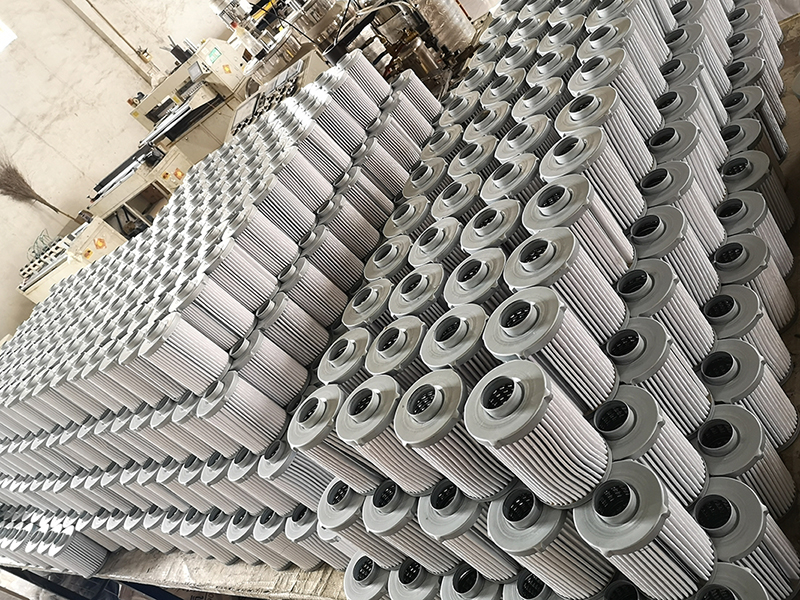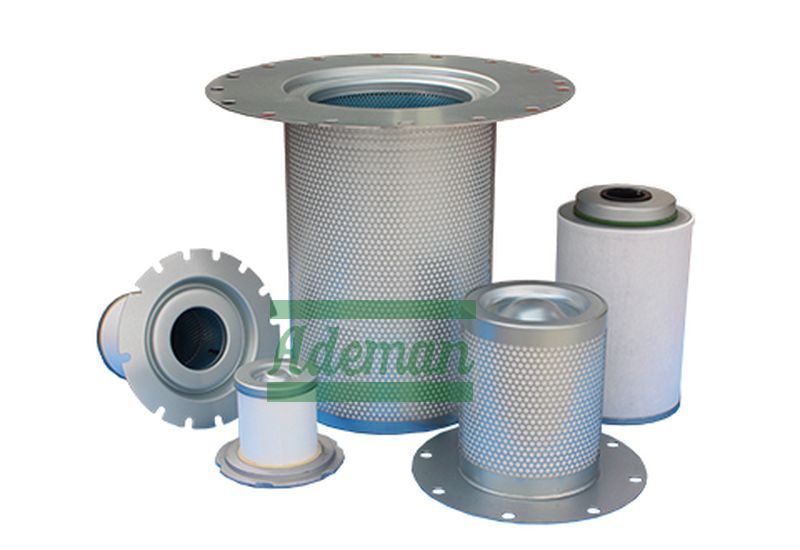
2021-10-15
 The oil filter is mainly used to improve the cleanliness of oil for machinery and electrical appliances
The oil filter is mainly used to improve the cleanliness of oil for machinery and electrical appliances
2021-10-15
2021-10-15
2021-10-15

Why is the oil core on fire and what are the factors leading to the fire? According to our long-term experience in dealing with oil separation faults, it is found that most cases of oil separation core burning occur in the cold period of winter every year, and usually occur when the machine is just started in the morning. Such cases account for more than 75% of the cases we deal with. The second is the initial start-up after the air compressor is shut down for a period of time, or the oil is burned after the machine is maintained. Such cases account for about 20% of the cases we deal with. Other reasons account for only about 5%. The causes of various phenomena are analyzed one by one below:
1、 Burning oil in cold weather
Many domestic air compressor small flow machines do not design temperature control valves. In winter, the temperature is low, the oil viscosity becomes larger and more viscous, and the oil flows slowly. When the machine is stopped for a period of time and started again, most of the oil in the cooler has flowed to the oil drum due to shutdown. When the main engine is rotating, because there is no bypass oil circuit to supply oil in time, the oil needs to go through the cooler, oil filter and oil cut-off valve to reach the main engine. This period of time will be relatively long, and the main engine will be in the state of oil shortage for a period of time. The dry friction of the main and auxiliary rotors is easy to produce open fire, which is sprayed into the oil and gas barrel to ignite the oil.
2、 The design of oil circuit system is defective or there is no temperature control valve
If the design of the oil circuit system is defective or there is no temperature control valve, the oil will be burned at one start after stopping for a period of time or maintaining the machine. Due to the design defect of oil circuit of most air compressors, the oil after shutdown flows back to the oil separation drum. The cooler and the main engine are in a state of oil shortage, but filled with air. When starting the machine, the main engine needs to pump out the air filled in it before the oil can enter. Due to the long pipeline, the oil supply time will be too long, resulting in the fire of the main engine and the burning of the oil core. Some operators (mainly novices) failed to add oil to the air inlet or oil filter of the main engine when maintaining the machine, and directly started the machine after maintenance, resulting in failure. This situation is basically the same as that of failure after a long shutdown time.
I have also seen a situation: machines with temperature control valve design but short circuited the temperature control valve for some reason, the bypass oil circuit is sealed, and the oil only goes through the cooler channel. Refer to the previous content
3、 The machine oil circuit system has failed
Engine oil cannot be injected into the main engine for cooling and lubrication, and dry friction is formed between the main and auxiliary rotors and the internal cavity and end face. Sparks are easy to be generated under high-speed rotation, and enter the oil-gas barrel through the oil-gas common pipe to ignite the oil separation filter material. This happened in a short time, the temperature sensing of the machine temperature sensor was delayed, the high-temperature tripping protection did not respond in time, and the oil core had been burned. This problem usually occurs at the beginning of machine startup. After the star delta conversion is completed, the machine starts loading after a delay of several seconds. Due to the failure of the main oil circuit, the oil has not yet reached the compression chamber of the main engine at this time, the air inlet valve is fully opened, and a large amount of air is sucked into the main engine. Because there is no oil cooling during compression, the main engine will make a sharp, harsh and dry friction sound during operation. Mars generated by dry friction enters the oil and gas barrel, and the high-heat air flow expands rapidly under the action of open fire. About 10-20 seconds, the safety valve begins to release fire smoke. (details: when the oil in the main oil circuit is not delivered to the main engine for the time being, the main engine is not completely free of oil. There is a small amount of residual oil in the compression chamber. When the main and auxiliary rotors rub with the compression chamber and end face, it is easier to be used as a combustion supporting agent. The heat brought by compression and friction will rapidly increase the temperature in the compression chamber, which will cause these small amounts of oil to flash.)
A customer once questioned me that the machine has high temperature protection. How can the machine burn out the oil due to high temperature? I want to say, will there be no fire where there is a fire extinguishing device? There is a detail to explain to you: the principle of the so-called high temperature protection is that the temperature sensor is connected with the machine control computer. The temperature sensor detects the temperature of the exhaust port of the host and monitors the temperature value transmitted at any time. When the set temperature value is reached (e.g. 120 ℃), the control circuit will be disconnected and shut down to protect the machine from running at high temperature for a long time, so as to ensure that all parts of the machine will not wear and accelerate aging at high temperature.
First of all, this high temperature protection system is mainly used to protect the machine from high temperature caused by general factors, such as insufficient oil in the machine oil barrel, poor pollution and heat dissipation of the cooler, blocked oil filter, insufficient oil supply, temperature control valve failure, so that the passage of oil into the cooler is too small to completely close the high temperature caused by bypass, and the deterioration of engine oil has carbon deposition or gelation, etc. However, it can not protect the immediate shutdown due to the open fire caused by the friction between the main and auxiliary rotors and the internal cavity when no oil enters the main engine for cooling. Just think, if you burn the sensor with fire, can it put out the fire? No! It can only be slowly heated by fire to "tell" the computer the temperature it feels (there is a delay in temperature sensing), let the computer disconnect the circuit, and the main motor will be powered off and stop running. At this time, the main engine cannot stop in time. It needs to stop and stop the operation after the main motor receives resistance (load force from the main engine)! Imagine another situation: if the design of the machine's high temperature protection system is defective or fails, will it also burn the oil core or even more serious consequences?
4、 Too much static electricity accumulated in the machine is not exported in time, causing sparks to burn the oil
The following aspects need to be checked:
① Is the machine not grounded or grounded but in poor contact?
Reference: grounding resistance ≤ 5 Ω
② Is the oil separation drum connected to the ground wire connected to the machine?
③ If the built-in oil separation core is installed and sealed with asbestos pad, check whether the oil separation barrel and the conductive nail on the oil separation asbestos pad have poor contact or complete insulation (whether there is foreign matter blocking the contact position with the conductive nail during oil separation installation, resulting in poor contact or insulation).
④ Whether the oil core has an electrostatic conductive system or whether the electrostatic conductive system is normal.
Reference: use the resistance gear of multimeter to test whether the metal parts such as external network and flange, flange and internal network, medium network and flange, flange and bottom are connected. (judge whether the new product is normal after testing. If it is burnt out oil, the test results are only for reference.)
5、 Foreign matters have entered the air inlet of the air compressor
Foreign matters, such as broken metal particles, impurities or rags, paper pieces, various fibers, etc., enter the air inlet of the air compressor. After being sucked into the main engine, the friction between the main and auxiliary rotors generates open fire, which enters the oil and gas barrel and ignites the oil separation filter material. Most of this happens after installing a new machine or repairing the main engine. Once there was an air compressor factory, because the paper label of the main engine fell into the head, as a result, when the test machine was assembled, the main engine sprayed fire and burned the oil core.
6、 Air compressor oil quality problem
There are problems in the quality of the air compressor oil, such as poor oxidation resistance, carbon deposition and gum formation, which remain on all parts of the main oil circuit system for a long time, resulting in the unobstructed oil circuit system. After these impurities enter the main engine, they are easy to produce open fire and burn the oil in the oil and gas barrel. It is recommended to use air compressor oil with good quality. When the machine is running at high temperature, check the causes of high temperature in time and reduce the temperature to a reasonable value. If there is carbon deposit or glue in the oil, the oil circuit and relevant parts of the air compressor shall be cleaned in time, all impurities shall be cleaned, and then the oil with good quality shall be replaced and added to the machine for operation, so as to ensure that the machine will not have similar faults.
7、 Electrical circuit short circuit
The open fire caused by the short circuit of the electrical circuit ignites the sound insulation cotton of the machine, burns through the air inlet hose, and the fire source enters the air compressor to burn the oil and machine accessories, such as pressure maintenance valve, exhaust pipe, cooler, etc. the whole machine basically burns beyond recognition.